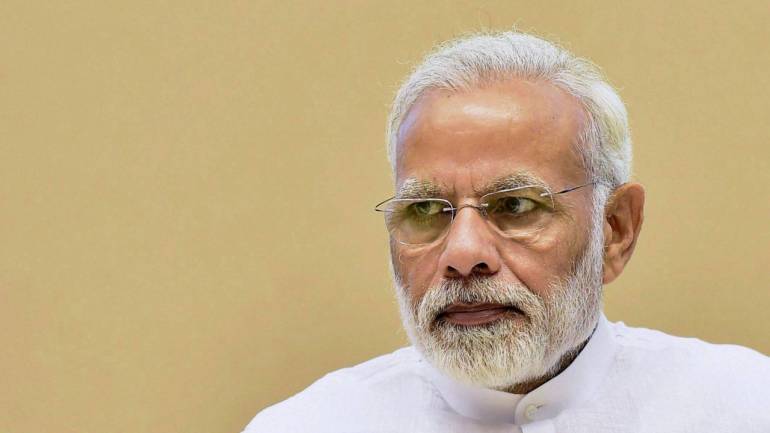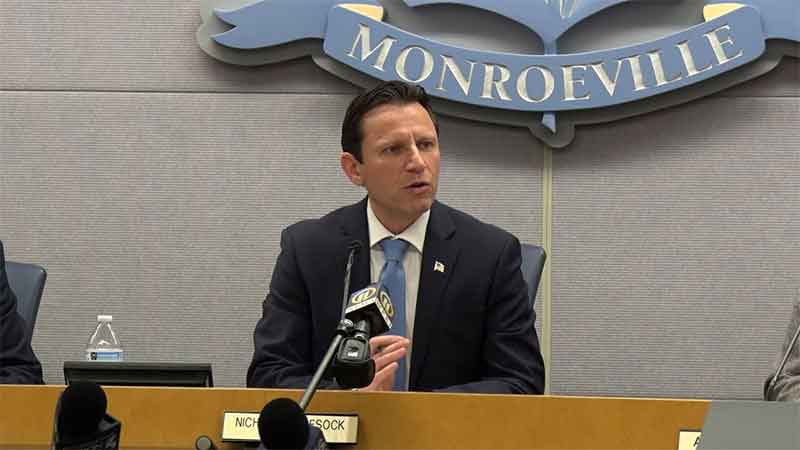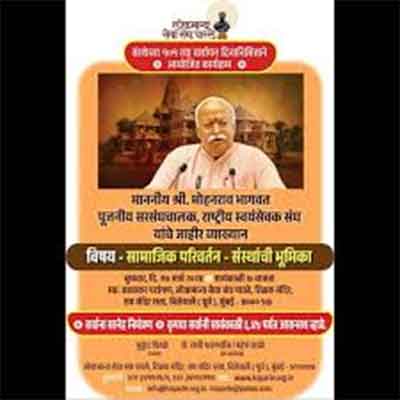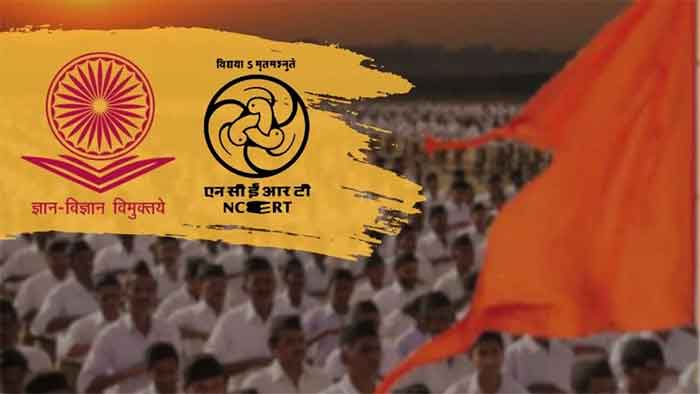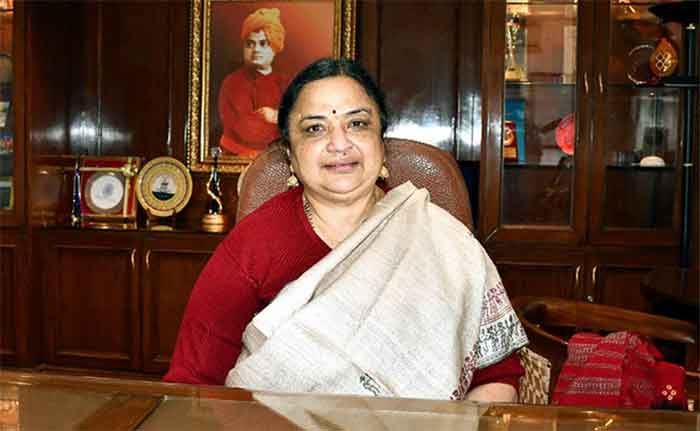
For a very long time now, we have been hearing people declare that we should do things ‘according to our national characteristics’. From Bankim Chatterjee to Partha Chatterjee, the chatter has not changed much. There are two kinds of people who make this argument at present: the patriots and the great intellectuals who make tours of other countries. While using the same phrase they mean different things. The patriots who declare that we should preserve our national characteristics mean that we should restore Hindu Raj or Ramrajya. The great intellectuals mean that students going abroad, or partaking in liberal ‘Western’ education in India itself, should not cut off ties from Hinduism (and thus their caste networks).
This insistence on national characteristics brings Lu Xun’s thoughts on the matter to mind. A friend of his puts it aptly, ‘If we want to preserve our national characteristics, we must first make sure they can preserve us’. Lu Xun continues, ‘Certainly self-preservation comes first. All we ask is whether a thing has the power to preserve us, not whether it is characteristic or not’. This brings us to the question at hand: What are our ‘so-called’ national characteristics and do they have the power to preserve us? This question needs to be answered so that we can make a reasoned decision about whether we want to persevere in our national characteristics or abandon behind for a different approach. If they make us strong and preserve us, then we should by all means make the effort required to not only persevere but we should also do our utmost to export our national characteristics to the world so everyone can become strong and survive. If, on the other hand, we find that our national characteristics make us weak and put our survival in peril, then we should make haste and dump our national characteristics as soon as possible.
In the latest development on this front, R Jagannathan, the editorial director of Swarajya Magazine, has written an editorial in The Times of India explaining why he thinks democracy in India ought not to be judged by the standards set in the West. What we need, he says, is a more nuanced democracy in India, a democracy that abides by Indian national characteristics. Jagannathan starts the article by saying that the standards used by ‘three global democracy watchers, Freedom House of the US, Economist’s Democracy Index and V Dem of Sweden’ are ‘evidence of western bias and hypocrisy.’ Thus, he concludes, India should articulate ‘a coherent counter view on how one must measure democracy with greater nuance’. One cannot fault him there. We know of Orientalism and the rest, we know how the West cements its supremacy through propaganda and there is no doubt that the White Man is capable of tarnishing the image of a people to gain an upper hand over them. Just look at the way it tried to turn people everywhere in the world against communism first and then now against Islam. While all this may be true, we still need to prove that the democracy watchers are indeed biased. Jagannathan advances three arguments to prove the claimed bias, let’s see if they withstand scrutiny.
The first argument advanced by Jagannathan is that the watchers only look at the issue in one way. What is that one way? ‘“Hindu nationalism” and “minority victimhood”—themes that have been tom-tommed ever since PM Modi took office … were the largest inputs in India’s downgrade’. Let’s agree with him and say minority rights were indeed primarily responsible for India’s downgrade. What exactly would be the problem with that? It seems to me that a guarantee of minority rights is indeed an extremely significant part of a functioning democracy. He claims that minority rights aren’t threatened in India by asserting that the ‘government’s efforts to support minority education with scholarships and elimination of bad social practices like instant triple talaq count for nothing’. How does he know they count for nothing? He doesn’t say. Surely a government can do some good things for minorities while largely disempowering them? That isn’t unheard of. How does saying the government does good things prove that the government hasn’t done bad thing? It’s a mystery. He then says that the majority also suffers discrimination in India but the democracy watchers don’t take that into consideration. While he again has no evidence to prove his claim, it doesn’t even really matter. Because, if it were true that the majority suffered discrimination in India, wouldn’t that just be more of a reason to downgrade India’s democracy? How does it make sense to say India’s democracy should not be downgraded because its majority suffers discrimination also? Then he goes on to cap it all by saying that ‘India’s real problem may not be a lack of democracy, but weak state ability to maintain the rule of law’. Again, isn’t the inability of the state to maintain rule of law a very good reason to suggest India’s lack of democratic functioning. How can democracy possibly function without a rule of law when the two things historically and logically go together? India’s national characteristic at the moment is a weak rule of law due to which, Jagannathan suggests, India should be an autocracy to develop the capacity to implement the law and become a functioning democracy only thereafter. He himself agrees that India should try to be more democratic and abandon at least that part of its national character that manifests in a weak rule of law and requires autocracy. And If India’s electoral autocracy is indeed ‘a passing stage where ineffective states first develop the competence to enforce the rule of law before learning to operate within it’, then we can also easily accept the downgrade as a passing stage and there is no need to suggest the downgrade is biased or unreflective of actual conditions.
Second, he goes on to suggest that the democracy watchers don’t give weightage to affirmative action in their indexes. Even if this is true and they don’t explicitly look at whether a country has undertaken affirmative action, won’t affirmative action show up in other parameters like political participation or individual rights? If affirmative action is not allowing the targeted population to sit at the governing table or enjoy civic freedoms, wouldn’t we have to conclude that the affirmative action program is not working as intended and needs to be repaired? Just the mere existence of affirmative action is no guarantee that it is actually working. If it works, it should show. If it doesn’t show, it’s not working and it does not have a positive impact. So, even if they are not looking at it, it is beside the point. It doesn’t by itself prove that the indexes are wrong, it just proves that affirmative action is hollow in India and needs to be improved.
His third problem is that the indexes take ‘the western historical experience as the norm, where states were seen as the main threats to individual freedom’. He suggests that if non-state actors like corporations or universalizing-proselytizing religions and ideologies were taken into account, then Western countries wouldn’t be so hot either and their score would come down too, thus presumably pushing India up. The democracy watchers clearly state that they take non-state actors into account (for example, look at Freedom House—Political rights and civil liberties can be affected by both state and nonstate actors, including insurgents and other armed groups.), but let’s give Jagannathan the benefit of the doubt and assume that the democracy watchers are lying and that they don’t actually look at non-state actors because their Western experience doesn’t allow them to. Let’s follow his suggestion and judge India on the basis of non-state actors. Does India fare well? I would think not. Regarding corporations, we have movements against corporate privatization coming from various economic sectors of society like farmers, bank workers, labourers, etc. on the one hand and from various social sectors like Adivasis, Dalits, etc. on the other hand. If corporations were not threatening the lives and livelihoods of these people, why would they continuously be protesting against them? As for religion, Hinduism can barely lay claim to being less undemocratic than Christianity or Islam. Sure, Hinduism does not want to convert the world as Jagannathan claims Islam and Christianity want to do, but it does want to force itself upon everyone in India with extreme vigour and it would seem that this fact would be more important for democracy in India than whether Hinduism wants to convert people in Sweden. Thus, it is not at all certain if India’s score would not come down even further if non-state actors were considered (assuming they haven’t been already).
We see that his problems with the indexes and his attempt to prove they are biased falls flat under scrutiny. Nonetheless, lets assume that he is essentially correct even though he has been unable to give good reasons for why he is correct. The indexes could very well do with improvement even if they aren’t biased in exactly the manner Jagannathan suggests they are. And if India’s input indeed has not been received in creating the indexes, then surely there can be no objection to the claim that ‘No democratic ranking can be fair without taking the Indic input into account’. So what is this Indic input according to Jagannathan?
The first input is that the ideals of liberty, equality, fraternity should be replaced by ‘Dharma, satya (truth), nyaya (justice) and antyodaya (compassion for the weak)’ because they are more achievable goals. Just because some goals are more achievable, should they replace goals that are harder to achieve? I would think not. Clearly he doesn’t believe in Les Brown’s inspirational quote: ‘Shoot for the moon. Even if you miss, you’ll land among the stars.’ He says you must aim at the earth so there is no chance of missing. Further, he doesn’t seem to understand what ideals are. Ideals are not meant to be achievable, they are meant only to be approximated in practical action. The way to judge an ideal is not to judge its achievability but to judge the effect it has on action as a guiding light. Therefore, if this was his only objection, it would not amount to much. The real objection to why we must not even aim for liberty, equality, fraternity (which are in our constitution but mysteriously attributed to the West by Jagannathan despite Ambedkar explicitly stating that he got these ideals from Buddhism and not the French Revolution) is that these ideals can’t be approximated without resort to coercion and violence. Does he give any reasoning for why these ideals can only be approximated by ‘a concentration of power and state capacity for violence’, no he does not. Does he give a reason to believe that dharma, nyaya, and antyodaya would require any less violence, no he does not. Surely, India’s history of caste violence shows us what it takes to maintain dharma. It would be foolish to suggest Dharma is established without violence. Ram achieved Ramrajya after violence. Krishna expressly advocates violence in the Bhagavat Gita, Gandhi’s favourite book. Gandhi himself was willing to fast to death for a goal he found hard to achieve without exercising violence on himself and without blackmailing others with the threat of uncontrolled violence lest something actually happen to him. Nonetheless, Jagannathan says these Indic ideals are the only way to maintain social cohesion in a period of change and that’s why they must be adopted over the ‘Western’ ideals. But does he give any reasoning for the exclusion of liberty, equality, fraternity as ideals for maintaining social cohesion, no he does not. We are just meant to accept these as irrefutable truths because Jagannathan says so. Finally, it is not even clear if an entire society should remain peaceful at a lower level of life when it is possible to exercise violence to achieve a better life for everyone. The debate on that particular issue is very vibrant and yet Jagannathan just assumes it is better to live on one’s knees than dying on one’s feet. We, who are less enlightened, can’t possibly make such assumptions for everyone in society. Maybe people do prefer to court death for a better life. Since Jagannathan seeks to change the constitution by replacing liberty, equality and fraternity with dharma, the onus is on him to prove that changing the constitution would lead to a better outcome for the country. If he can’t prove that, there is no reason to go about changing the constitution and we can safely reject these so-called Indic ideals for the ideals already set in our constitution, irrespective of whether they are Western or not.
His second input is to provide alternate definitions of freedom of expression and freedom of conscience. He says that the thinkers in Judeo-Christian traditions consider freedom of expression and freedom of conscience valuable but they don’t understand that Indians mean different things by these expressions. According to Jagannathan, freedom of expression is not to create ‘dissensions in society’ because a person should exercise ‘a voluntary restraint and a corresponding sense of responsibility’ and only say things that agree with the established consensus(?). This is a most curious definition of freedom of expression. No one has ever stopped anyone from freely agreeing with the reigning consensus. No concept of freedom of expression would be required for such an activity. Freedom of expression only becomes a right when it is guaranteed against the prevailing consensus. Further, if Indians really did mean ‘no dissent’ by freedom of expression, how would Jagannathan possibly explain all the movements of dissent in India? Are they dissenting without taking recourse to freedom of expression? Further, how would he explain Gandhi’s civil disobedience which was expressly aimed at creating dissensions in society and which itself partook of freedom of expression to do so? A democracy without dissent would be a weak democracy indeed and it would make little sense to adopt such a thing if we want to become strong and survive in the modern world. Yes-men have never ever led to anything good, even kings of old knew that, surely us moderns can’t not know it. By freedom of conscience, Jagannathan means an individual’s right to choose his own god and not a religious institution’s right to convert others. But, a problem arises between these two terms set by Jagannathan. If an individual chooses to join a religious institution, how can he do so without the religious institution converting him? It seems that an individual’s right to choose his own god would be quite restricted if he couldn’t join a religious institution of his choosing because religious institutions were banned from doing conversions. This contradiction which renders his ‘Indic’ conception of freedom of conscience hollow does not seem to bother Jagannathan. If Indians believe that one can choose one’s own god, then they have to believe that a religious institution can convert others. And if they don’t believe one can choose one’s own god, then we are not talking about freedom of conscience at all. Both freedom of expression and freedom of conscience actually turn out to be the same for the West and India, Jagannathan’s objections notwithstanding. And if Indic ideals indeed are freedom of expression without dissent and freedom of conscience without conversion, then they should be rejected because such contradictory and hollow ideals can’t possibly be beneficial for society.
Jagannathan is unable to prove ‘Indic’ ideals are better and yet he insists that we must not only stick by them but actually substitute them for what is already in our constitution because something bad will happen if we don’t. We can just as well say that something good will happen if we reject Indic ideals comprehensively. Surely, sticking by Indic ideals has not resulted in very good things for India, even by his own account. If India was pure before the Muslim invasion, then what else is to blame for the Muslims ruling India but Indic ideals which failed to protect Indians from Muslim marauders? If Indic ideals were so great, why was Britain able to colonize us so easily? If Indic ideals threw the British out, why would India be ruled by his hated Congress for 70 years before someone chockful of Indic ideals ascended the throne of democratic power? Why would he need to exhort Indians to follow Indic ideals if Indic ideals were not being abandoned by the people due to their harmful nature? What good are ideals which cannot protect one from one’s oppressors and which can’t protect a country from invaders? Instead of harping on Indic ideals, maybe the time has come to abandon them and accept the ideals already set in the West as more conducive to our preservation and growth. And if we are going to adopt the same ideals as the West, then there seems to be no harm in being judged on the same parameters of democracy. In fact, India could even learn much from the West and make its democracy stronger instead of reacting adversely to its downgrade and feeling threatened by it.
If, as Ramnath Jha suggests in his article, large countries like India find it difficult to function democratically, then we can even consider breaking India into small and homogenous nation-states so everyone can enjoy the fruits of democracy. No option should be off the table, no matter how difficult it seems. If the unity and integrity of the country leads to undemocratic outcomes, then the unity and integrity should be abandoned. If Hinduism leads to undemocratic outcomes, then Hinduism should be annihilated. We can change, there is no problem in changing, but as moderns we cannot consent to live undemocratically. If a person doesn’t exercise and grows fatter every day, then there is no point in saying that the person should retain his character and diseases should change their criteria for afflicting people. The person has to change his character and start exercising if he wants to survive. The same holds true for countries. If our traditions or characteristics make us weak, then we have to change our traditions and find new and better ways of surviving. The Indian constitution was one such attempt to overcome Indic ideals and forge ahead in modernity. That it failed to achieve its promise was visible to Ambedkar already in the 1950s. The time has come to make another such attempt if we don’t want to slip back into Hindu raj and become fit targets for imperialist invasions and fit breeding grounds for civil wars.
Akshat Jain is a writer currently residing in India. He uses the debate methodology of Syādvāda to piss people off. Like a good Syādvādist, he claims that all his claims fall within the ambit of falsifiability.
GET COUNTERCURRENTS DAILY NEWSLETTER STRAIGHT TO YOUR INBOX

